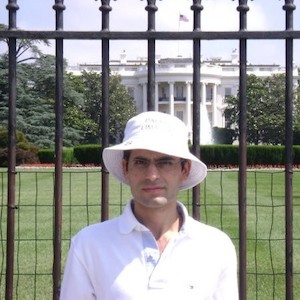distributed ledger technology (DLT)
See the following -
An introduction to Hyperledger Fabric
 One of the biggest projects in the blockchain industry, Hyperledger, is comprised of a set of open source tools and subprojects. It's a global collaboration hosted by The Linux Foundation and includes leaders in different sectors who are aiming to build a robust, business-driven blockchain framework. There are three main types of blockchain networks: public blockchains, consortiums or federated blockchains, and private blockchains. Hyperledger is a blockchain framework that aims to help companies build private or consortium permissioned blockchain networks where multiple organizations can share the control and permission to operate a node within the network. Since a blockchain is a transparent, immutable, and secure decentralized system, it is considered a game-changing solution for traditional supply chain industries. It can support an effective supply chain system by:
One of the biggest projects in the blockchain industry, Hyperledger, is comprised of a set of open source tools and subprojects. It's a global collaboration hosted by The Linux Foundation and includes leaders in different sectors who are aiming to build a robust, business-driven blockchain framework. There are three main types of blockchain networks: public blockchains, consortiums or federated blockchains, and private blockchains. Hyperledger is a blockchain framework that aims to help companies build private or consortium permissioned blockchain networks where multiple organizations can share the control and permission to operate a node within the network. Since a blockchain is a transparent, immutable, and secure decentralized system, it is considered a game-changing solution for traditional supply chain industries. It can support an effective supply chain system by:
- Login to post comments
How Blockchain Can Give Physicians the Power of Information
 One of the more progressive concepts to help physicians to develop a collective voice is the use of blockchain technology. HPEC is a start-up created by Emergency Medicine physician Leah Houston, MD to harness the power of blockchain to decentralize ownership of information (in this case, your professional information as a physician) and create a virtual physician community. No more updating your credentials with a third-party every year (think CAHQ) so that that information can then be sold to future employers or hospitals looking to credential you.
One of the more progressive concepts to help physicians to develop a collective voice is the use of blockchain technology. HPEC is a start-up created by Emergency Medicine physician Leah Houston, MD to harness the power of blockchain to decentralize ownership of information (in this case, your professional information as a physician) and create a virtual physician community. No more updating your credentials with a third-party every year (think CAHQ) so that that information can then be sold to future employers or hospitals looking to credential you.
- Login to post comments
On the Need for a Universal Health Record
 The current path of progress of the EHR, with its concentration on “meaningful use,” and an intellectual property regime that does not fully exploit the capacity for innovation by end-users is approaching an evolutionary dead-end. It is time to treat the EHR as what it should be: an integral part of medical care that has limitless potential for maximizing the use of information acquired in the provision of health care, and not an impediment to optimal care and a bugaboo for the physician. Read More »
The current path of progress of the EHR, with its concentration on “meaningful use,” and an intellectual property regime that does not fully exploit the capacity for innovation by end-users is approaching an evolutionary dead-end. It is time to treat the EHR as what it should be: an integral part of medical care that has limitless potential for maximizing the use of information acquired in the provision of health care, and not an impediment to optimal care and a bugaboo for the physician. Read More »
- Login to post comments
Using Digital Ledger Technology To Put Physicians Back In Control
 Our healthcare system is failing. It costs more and has overall worse outcomes than any other industrialized nation. It is failing because those on the front lines of healthcare - the physicians and patients- have no say in how the system is run. Distributed Ledger Technology (DLT) - otherwise known as blockchain - has the ability to change that. DLT allows for secure direct peer to peer (In healthcare this means patient to doctor and doctor to doctor) communication and data transfer. No more storage of private information and transactions on centralized data capturing systems like electronic health records platforms.
Our healthcare system is failing. It costs more and has overall worse outcomes than any other industrialized nation. It is failing because those on the front lines of healthcare - the physicians and patients- have no say in how the system is run. Distributed Ledger Technology (DLT) - otherwise known as blockchain - has the ability to change that. DLT allows for secure direct peer to peer (In healthcare this means patient to doctor and doctor to doctor) communication and data transfer. No more storage of private information and transactions on centralized data capturing systems like electronic health records platforms.
- Login to post comments
